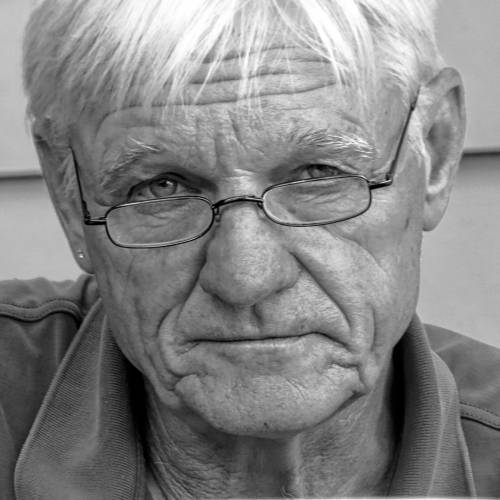The World Keeps Turning: Another Memorial Day, and the war machine is still winning

Allen Woods
| Published: 05-25-2025 11:13 PM |
During a career spanning World Wars I and II, development of nuclear weapons in the 1940s, and the frantic arms race of the 1950s, no one knew more about the power of the U.S. military and the industries that manufactured its weapons than Dwight Eisenhower. He steadily rose through the Army ranks until his appointment as Supreme Allied Commander of all forces in Europe in WWII, and then directed the operations which finally defeated the forces of Hitler and Mussolini. He resisted calls to run for president in 1948 and became President of Columbia University instead, hoping to promote “the American form of democracy” through education, and helped establish an institute to “study war as a tragic social phenomenon.”
Americans elected Eisenhower to lead them through the international turmoil of the 1950s. As president, he helped end the Korean War, participated enthusiastically in the Cold War arms race by promoting nuclear weapons over ground troops, advocated for nuclear power plants and other peaceful developments, and supported equal rights in the military and elsewhere. He also took a variety of social actions that today’s liberals would criticize as repressive or discriminatory.
After 50 years of service, his Farewell Address in January 1961 provided both inspiration and warnings. He hoped the world would allow people “to live together in a peace guaranteed by … mutual respect and love.” But he believed the U.S. had been “compelled” by worldwide threats to create an “immense military establishment” as well as a “permanent armaments industry of vast proportions.”
He thought America could walk a perilous tightrope, with a nation unprepared for war (as before the Pearl Harbor attack in 1941) on one side, and a nation overprepared and eager for war on the other. To maintain its balance, the U.S. “must guard against the acquisition of unwarranted influence … by the military-industrial complex.”
Memorial Day is defined by US Code 36 §112 of 1998 and, surprisingly, makes no mention of the thousands who lost their lives in American wars. Instead, it calls on Americans to pray “according to their individual religious faith, for permanent peace.”
On Memorial Day 2025, it’s clear that any previous prayers sent to Gods around the world remain unanswered. Eisenhower’s warning against “unwarranted influence” by the military-industrial complex has also fallen on deaf ears.
America spends nearly $1 trillion (a thousand billion) yearly on its own military arms, 37% of all military spending worldwide, and as much as it spends on all other discretionary programs. The next highest totals? China spends one third as much, and Russia one sixth. The top five arms producers in the world are American, and we manufacture and export about 40% of all the world’s military purchases. The war machine continues to reap obscene profits, currently in the trillions of dollars, from conflicts outside the U.S.
In a comforting dreamworld described in John Lennon’s song “Imagine,” countries would lay down their arms so we could all begin ”livin’ life in peace.” But in my short lifespan, and in reviewing world history, I’ve seen no lasting progress towards that end. The League of Nations and United Nations failed to seriously consider or advance any type of world disarmament. And as much as I might imagine a different U.S. presence in the world order, we aren’t, and cannot be, Costa Rica (which has no army) or Switzerland (officially neutral for two centuries, to its great economic benefit).
Article continues after...
Yesterday's Most Read Articles
 Green River Festival brings ‘cultural melting pot’ of music to fairgrounds
Green River Festival brings ‘cultural melting pot’ of music to fairgrounds
 With a little help from his community: Northfield Mount Hermon teacher fighting rare form of cancer begins clinical trial
With a little help from his community: Northfield Mount Hermon teacher fighting rare form of cancer begins clinical trial
 Small group, big impact: Volunteers form community in Greenfield while removing invasive plants
Small group, big impact: Volunteers form community in Greenfield while removing invasive plants
 PHOTOS: Green River Festival wraps up 39th year
PHOTOS: Green River Festival wraps up 39th year
 Montague Police Logs: May 18 to May 26, 2025
Montague Police Logs: May 18 to May 26, 2025
 UMass climate scientists reeling as Trump administration slashes funding for research
UMass climate scientists reeling as Trump administration slashes funding for research
Today, I agree with Eisenhower that we are “compelled” to maintain a significant military presence for our defense. I also believe a special circle in hell should be reserved for those who initiate wars to gain land, riches, or power. But does over-the-top “preparedness” (our stock of 4,000 nuclear warheads is enough to kill everyone in the world several times) propel us toward its use? Does a force of nearly three million military personnel encourage us to put them in harm’s way?
I certainly hope not. At its most basic level, war is a pointless waste of blood and treasure, of young lives and material wealth. A simple Motown tune from 1969 describes it best: “War? What is it good for? Absolutely nothin’ … It means tears to thousands of mothers’ eyes … It’s nothin’ but a heartbreaker, friend only to The Undertaker.”
On Memorial Day, let us remember the tears in millions of mothers’ eyes and the young men and women so willingly sacrificed by older generations. Let us pray, and work, for permanent peace.
Allen Woods is a freelance writer, author of the Revolutionary-era historical fiction novel “The Sword and Scabbard,” and Greenfield resident. His column appears regularly on a Saturday. Comments are welcome here or at awoods2846@gmail.com.






 Columnist Judy Wagner: The songs of summer
Columnist Judy Wagner: The songs of summer Guest columnist Rob Moir: For cod and country
Guest columnist Rob Moir: For cod and country Marguerite Willis: Lessons aplenty in sports article
Marguerite Willis: Lessons aplenty in sports article Maia Hinesley-Saunders: The Skrmetti decision, Dobbs, and solidarity with the reproductive justice movement
Maia Hinesley-Saunders: The Skrmetti decision, Dobbs, and solidarity with the reproductive justice movement
